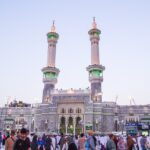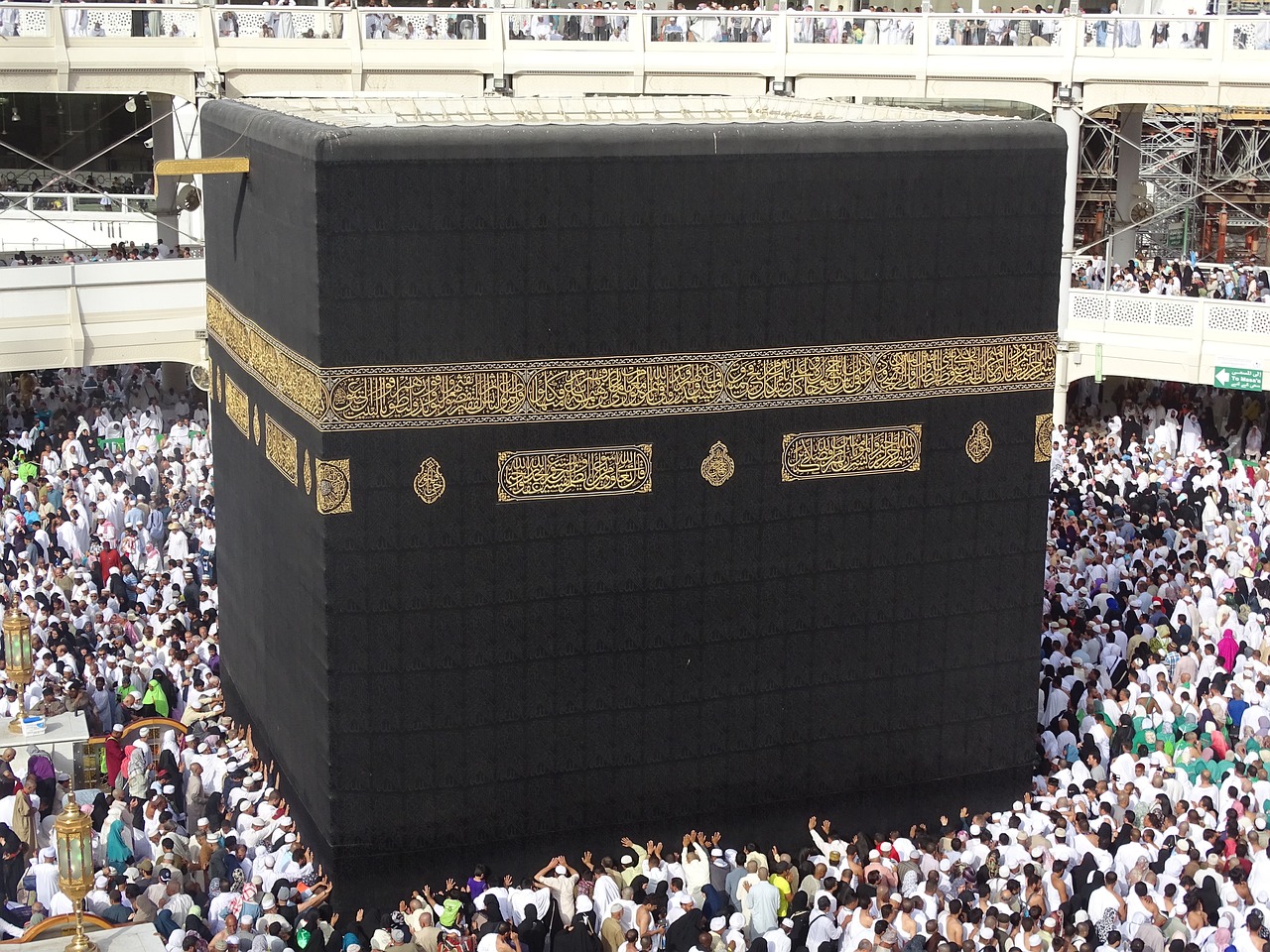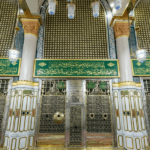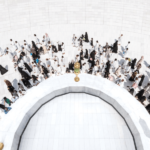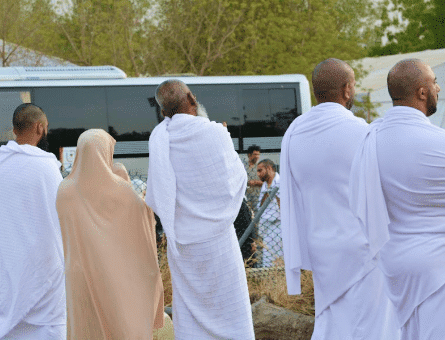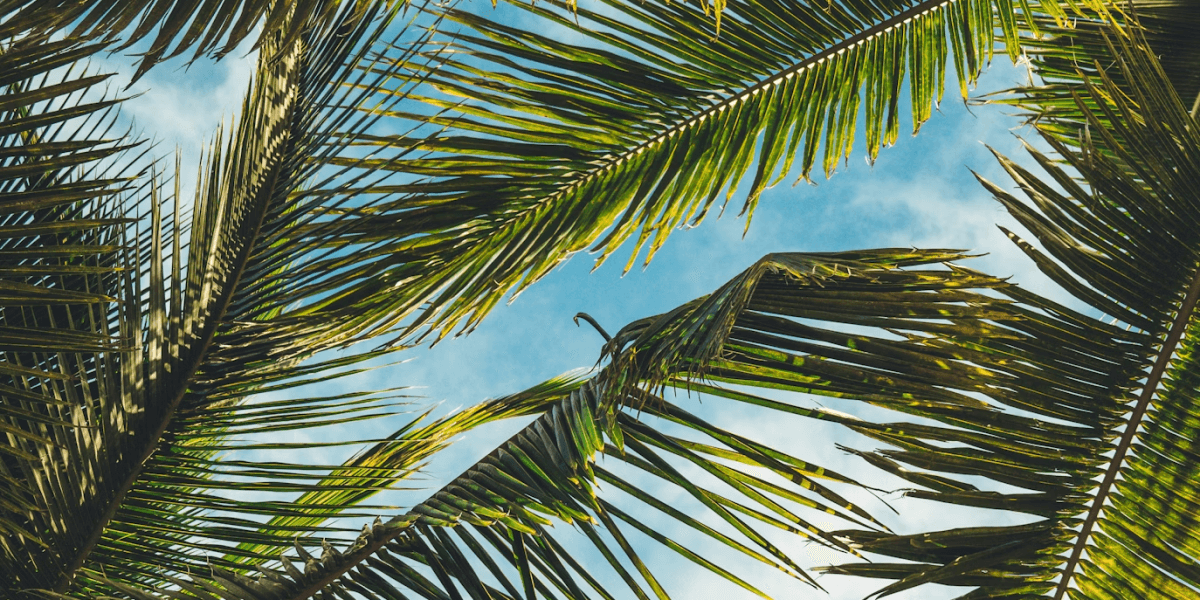Garden of Salman Al Farsi – Everything You Need to Know
Salman Al Farsi, also known as Salman the Persian, is a popular figure in Islamic history. He was a companion to Prophet Muhammad (P.B.U.H.), who converted to Islam following the Prophet’s (P.B.U.H.) migration to Madinah from Makkah.
The Garden of Salman Al Farsi (R.A.) is a historical site in Madinah. The garden has a unique significance in Islamic history. It was planted by the Holy Prophet (P.B.U.H.) and his companions to free Salman Al Farsi (R.A.) from the slavery of his Jewish master when the Muslims along with Holy Prophet (P.B.U.H.) migrated from Makkah to Madina.
Let’s learn more about the garden of Salman Al Farsi (R.A.) and the beloved companion of the Holy Prophet (P.B.U.H.) in this post.
What Is the Garden of Salman Al Farsi?
 The Garden of Salman Al Farsi (R.A.) is an ancient site in the holy city of Madina, which is around 300 miles from Jeddah. Moreover, the garden is located at a distance of around 5.5 miles from Masjid e Nabawi (haram).
The Garden of Salman Al Farsi (R.A.) is an ancient site in the holy city of Madina, which is around 300 miles from Jeddah. Moreover, the garden is located at a distance of around 5.5 miles from Masjid e Nabawi (haram).
The garden is of great significance in Islamic tradition as it is home to 300 date palms planted by the Holy Prophet (P.B.U.H.) and his companions as compensation to free Salman Al-Farsi (R.A.) following the migration to Madinah province from Makkah.
The garden of Salman Al Farsi (R.A.) can be conveniently visited from the haram and possess a well of fresh water which is used to water the date trees.
Visitors and pilgrims who visit haram and Makkah for Umrah and Hajj can go to Madinah to visit the garden of Salman Al Farsi, drink fresh, sweet water from the well, and purchase dates from the sacred place.
Who Was Salman Al Farsi?
Salman Al Farsi, also known as Salman, the Persian was a companion of the Prophet Mohammad (P.B.U.H.) and the first Persian who converted to Islam.
Salman Al Farsi (R.A.) was born in Isfahan, Iran, and was originally named Ruzbih. According to traditions, his father, Khushfudan, was an Iranian landholder who practiced the Zoroastrian religion. However, the family later converted to Christianity.
As Salman Al Farsi (R.A.) grew up in his hometown in Iran, his father’s love for learning about the new religion encouraged him to send his son to Syria to study under leading Christian scholars. However, Salman Al Farsi (R.A.) had other plans. He was eager to learn more about the religion of Ibrahim (A.S.), and he used his travel plan to Syria as an escape in search of the Prophet (P.B.U.H.) in the land of Arabs.
On his way to Hijaz, Salman Al Farsi (R.A.) was enslaved and sold to a man in the Banu Qurayza tribe in Madinah, an influential Jewish tribe. The event occurred around the same time the Holy Prophet (P.B.U.H.) had recently migrated to the city from the Holy city of Makkah.
Since both Salman Al Faris and the Holy Prophet (P.B.U.H.) were both in Madinah, Salman Al Farsi (R.A.) quickly learned about the presence of a prophet who recently migrated from Mecca.
When Salman Al Farsi (R.A.) first met the Holy Prophet (P.B.U.H.) in Masjid e Quba in Madinah, he shared some food as a present which the Prophet (P.B.U.H.) accepted. After a few more interactions in and outside the masjid, Salman Al Farsi (R.A.) decided to convert to Islam solely inspired by the Prophet’s (P.B.U.H.) character.
Salman the Persian and the Cost of Freedom
While Salman Al Farsi (R.A.) accepted Islam, he was still enslaved by his Jewish master, an influential person from the Banu Qurayza tribe. The master kept Salman Al Farsi (R.A.) enslaved at his property located in the Southern region of Madinah.
As a result, Salman Al Farsi (R.A.) was never able to maintain contact with his Muslim brothers in Madinah. Moreover, given his location and position as a slave, he was unable to participate in any conquests or battles taking place against non-Muslims after the migration. Salman Al Farsi (R.A.) didn’t participate in the Battle of Badr or Uhud.
Salman Al Farsi (R.A.) requested his master to let him go and charge compensation against him. The price quoted by the Jewish master was nowhere in his means.
The Jewish master asked Salman Al Farsi (R.A.) to pay him 40 ounces of gold. Moreover, he also asked him to cultivate 300 date trees in his garden. The compensation was beyond Salman Al Farsi’s means, so he sought support from the Holy Prophet (P.B.U.H.).
Prophet Muhammad (P.B.U.H.) asked Salman Al Farsi (R.A.) to get into an agreement with his Jewish master for compensation.
40 Ounces of Gold and 300 Date Palms
 The Holy Prophet (P.B.U.H.) commanded Salman Al Farsi (R.A.) to agree to his master’s terms. Meanwhile, he also asked other Muslim companions to assist in freeing Salman Al Farsi (R.A.) with date palms.
The Holy Prophet (P.B.U.H.) commanded Salman Al Farsi (R.A.) to agree to his master’s terms. Meanwhile, he also asked other Muslim companions to assist in freeing Salman Al Farsi (R.A.) with date palms.
Several Muslim companions reached out to the Prophet (P.B.U.H.) to free Salman Al Farsi (R.A.) and contributed palm shoots which can be used to plant the 300 date trees. When the required palm shoots were collected, the Holy Prophet (P.B.U.H.) instructed the companions to dig the holes.
As the companions continued to dig holes in the garden, the Holy Prophet (P.B.U.H.) planted the 300 shoots himself.
However, Salman Al Farsi (R.A.) wasn’t freed as a part of the debt was still remaining.
Once, the Holy Prophet (P.B.U.H.) was sitting with his companions when one of the companions came and handed him gold pieces as big as an egg to give as a charity for the poor. The Messenger of Allah (P.B.U.H.) used this opportunity to tell his companions that charity given in order to free a slave is much more than charity given to the poor. Meanwhile, he also asked his companions to look for Salman Al Farsi (R.A).
The Prophet (P.B.U.H.) handed over the piece of gold to Salman Al Farsi (R.A.), who said, “O Messenger of Allah! This gold is not as heavy as the master wants!” To this, the Prophet (P.B.U.H.) replied, “Take this. Allah (S.A.W.) will indeed pay your debt with it.”
It turned out to be the many miracles that Allah granted to Prophet Muhammad (P.B.U.H.) as the piece of gold weighed exactly as much as the Jewish master demanded.
As a result, Salman Al Farsi (R.A.) was freed from slavery.
Salman Al Farsi (R.A.) Family
Little is known about the family of Salman Al Farsi. From historical records, it is believed that Salman Al Farsi (R.A.) was born in Isfahan, Iran and his father, Khushfudan was an elite landlord.
Other than his father’s details, there isn’t much historical record of Salman Al Farsi’s family.
When Did Salman Al Farsi (R.A.) Die?
Salman Al Farsi (R.A.) played an integral role in Islamic history following his freedom.
He proved to be an innovative military strategist at the Battle of Trench where he suggested that Muslims should dig trenches around Madinah to keep the enemy’s army at bay.
When Abu Sufyan, the leader of Quraish (the disbelievers from Makkah) saw the implementation of this strategy, he was surprised as the technique was never used by Arabs in any wars before.
Given his commitment to the struggles that Muslims faced during the early days of Islam, he came to be known as “Salman, the Good”.
From his life as an elite landlord’s son, Salman Al Farsi (R.A.) grew up completely transformed into a simple man and scholar who continued to live without a house.
Later, Salman Al Farsi (R.A.) left Madinah and was appointed as the governor of Al-Madain near Baghdad. During his service as the governor, he would receive a large amount of money as a stipend which he would gladly distribute as charity.
While Salman Al Farsi (R.A.) continued to live a simple life, he observed moderation in various life aspects. It is related that Salman Al Farsi (R.A.) once visited Abu Ad-Dardaa (R.A.), a companion of the Holy Prophet (P.B.U.H.), only to find his wife in a miserable state.
Upon asking, she replied, “your brother (Abu Ad-Dardaa (R.A.) has no need of anything in this world.”
When Abu Ad-Dardaa (R.A.) returned, he greeted Salman Al Farsi (R.A.), who offered him food. But when Salman Al Farsi (R.A.) asked him to eat along, Abu Ad-Dardaa (R.A.) replied, “I am fasting.”
Salman Al Farsi (R.A.) said, “I shall not eat until you eat also,” and spent the night with his friend. During the night, Abu Ad-Dardaa (R.A.) woke up for fasting, but Salman (R.A.) got hold of him and said, “O Abu Ad-Dardaa, your Lord has a right over you. Your family have a right over you and your body has a right over you. Give to each its due.”
The two companions prayed together and went to meet the Holy Prophet (P.B.U.H.). When the companions discussed Abu Ad-Dardaa’s (R.A.) approach to practicing religion, the Prophet (P.B.U.H.) supported Salman (R.A.) in what he said.
Salman Al Farsi (R.A.) possessed a vast knowledge of Islam and wisdom. His in-depth understanding of religion and the world earned him the title of Luqman, the wise by Ali ibn Talib (R.A.). During his lifetime, Salman Al Farsi (R.A.) managed to translate certain parts of the Quran into Persian language and hence was the first person to translate the Quran into a foreign language.
Salman Al Farsi’s (R.A.) search for truth led him in the right direction. From the influential household in which he grew up to the indignities of slavery and the companionship of the Prophet (P.B.U.H.), Salman Al Farsi’s long journey came to an end in Iraq. He died during the caliphate of Usman in 35 A.H.
Salman Al Farsi (R.A.) Mosque
The Salman Al Farsi (R.A.) Mosque, also known as Masjid-e-Salman Al Farsi (R.A.) is located in a small village in Iraq known as Salman Pak.
Salman Pak is considered as one of the holy sites in Iraq which is located around 20 miles southeast of Baghdad and is named after the beloved companion of the Holy Prophet (P.B.U.H.). The small village is home to the masjid named after Salman Al Farsi (R.A.). It is a small masjid that can with limited capacity. The mausoleum of Salman Al Farsi (R.A.) is also located under the central dome of the masjid.
Summary – Garden of Salman Farsi
The garden of Salman Al Farsi (R.A.) is a significant historical site in Madinah that visitors and pilgrims to haram can visit. The garden is important to Islamic history as it is the place where Prophet Muhammad (P.B.U.H.) planted 300 date palms to free one of his companions, Salman Al Farsi (R.A.), from a Jewish master following the migration from Makkah.
Salman Al Farsi (R.A.) became an asset for Muslims after his freedom from slavery as he appeared as a great military strategist in the Battle of Trench and a wise scholar of religion in the years that followed.
He continued to live a simple life as a practicing companion of the Holy Prophet (P.B.U.H.) and died in 35 A.H.
Explore The New Pilgrim App
The Ultimate App
for Hajj and Umrah!




